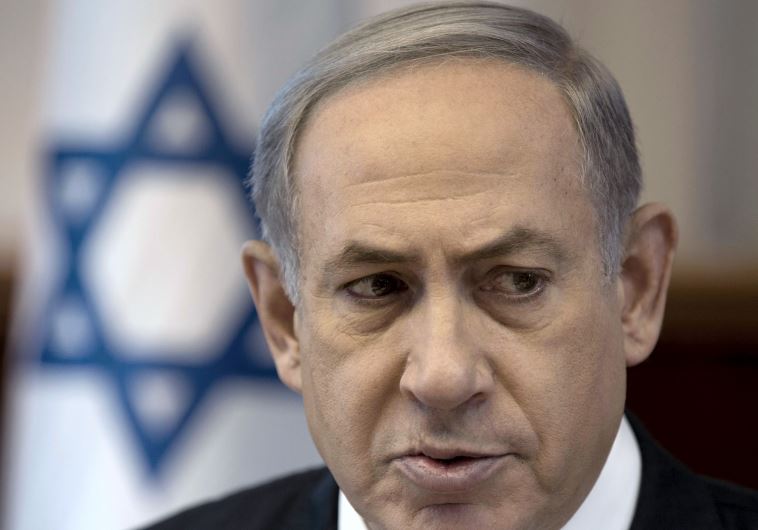'Two-thirds of Americans back Israel's position on Iran deal,' Netanyahu says
"Having the support of US public opinion will manifest not just this year but in the years to come," premier told Likudniks.
 Prime Minister Benjamin Netanyahu attends the weekly cabinet meeting at his office in Jerusalem
Prime Minister Benjamin Netanyahu attends the weekly cabinet meeting at his office in Jerusalem